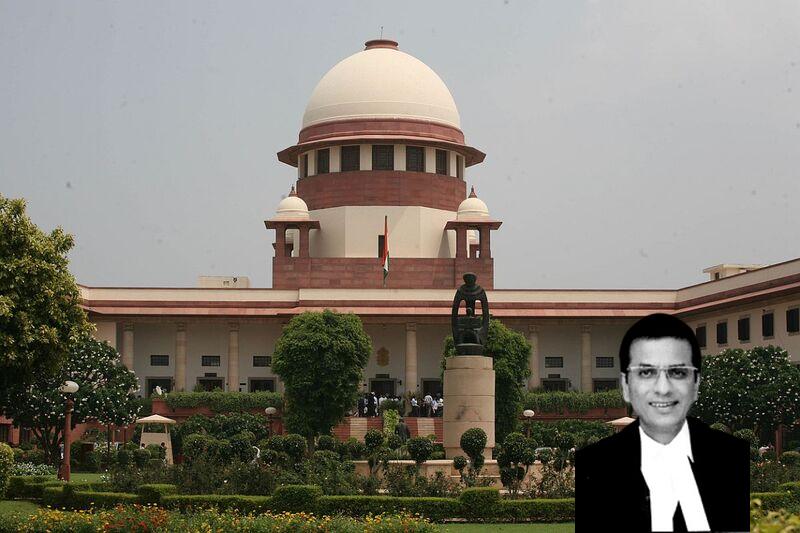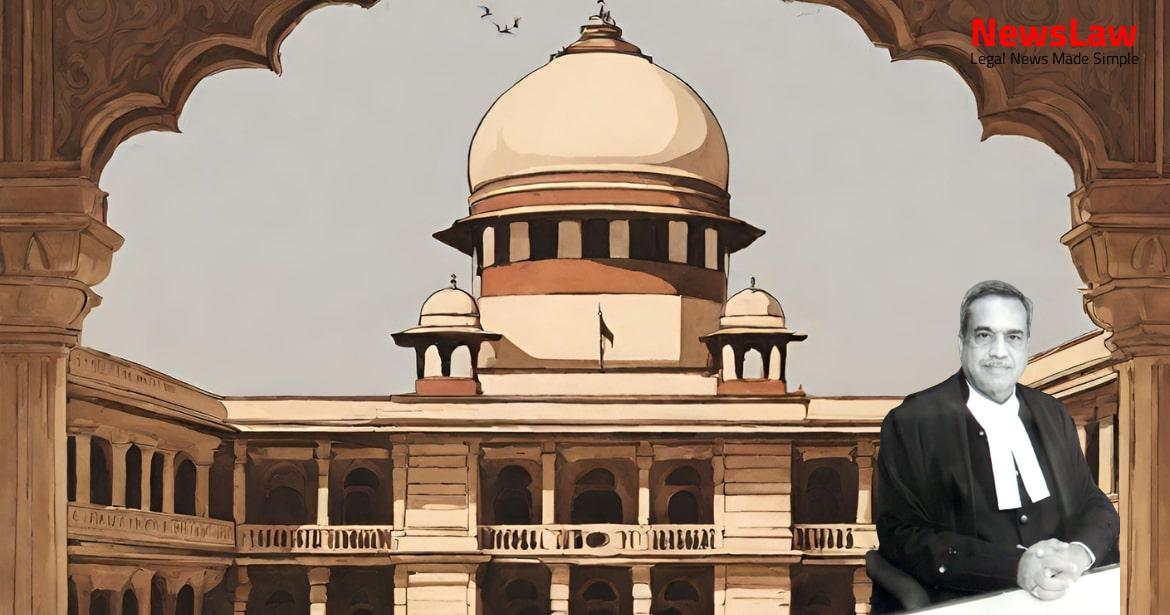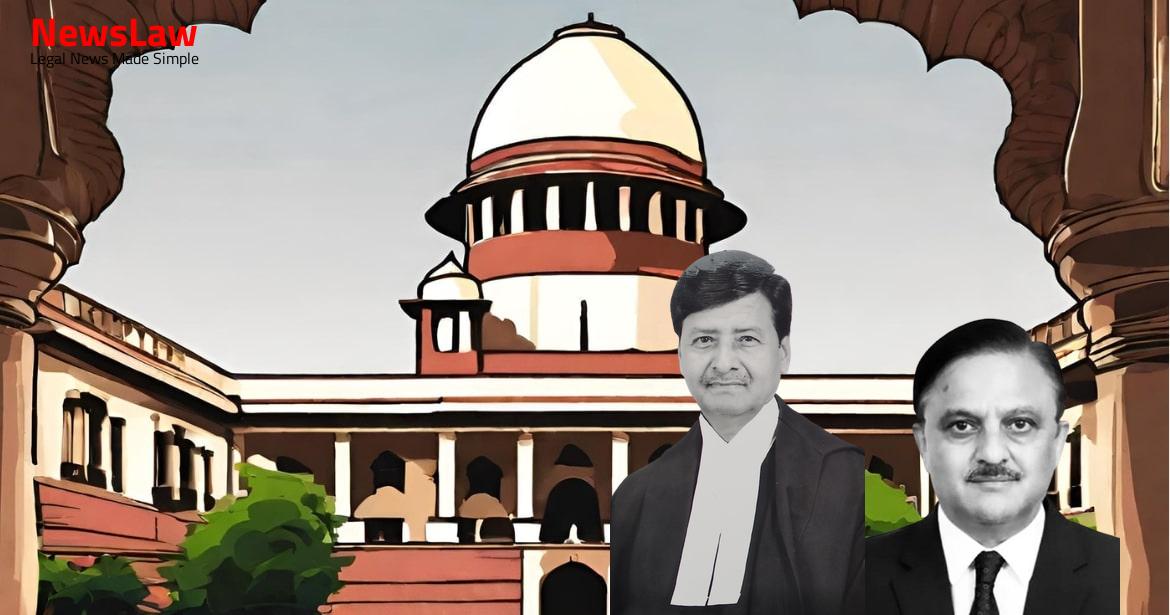By the later order 1 dated 26.07.2023, the Division Bench rejected the prayer of the writ petitioners to quash/set aside their arrest orders along with their arrest memos and the consequential proceedings arising therefrom, including the orders dated 15.06.2023, 20.06.2023 and 26.06.2023 passed by the learned Vacation Judge/Additional Sessions Judge, Panchkula, whereby they were remanded to the custody of the Directorate of Enforcement (for brevity, ‘the ED’) and thereafter, to judicial custody. The genesis of these appeals is traceable to FIR No 0006 dated 17.04.2023 registered by the Anti-Corruption Bureau, Panchkula, Haryana, under Sections 7, 8, 11 and 13 of the Prevention of Corruption Act, 1988, read with Section 120B IPC for the offences of corruption and bribery along with criminal conspiracy. 01/2022, titled ‘Assistant Director, Directorate of Enforcement vs Lalit Goyal and others ’, against seven named accused, under Section 200 Cr.P.C read with Sections 44 and 45 of the Act of 2002. By separate orders dated 09.06.2023 passed therein, the Delhi High Court noted that Pankaj Bansal and Basant Bansal had not been named in the first ECIR and that the ED had not yet been able to implicate them in any of the scheduled offences under the Act of 2002. 4 However, summons were issued by the ED to Pankaj Bansal and Basant Bansal on 13.06.2023 at 06.15 pm in relation to the first ECIR, requiring them to appear before the ED on 14.06.2023 at 11.00 am.
While Pankaj Bansal and Basant Bansal were at the office of the ED at Rajokri, New Delhi, in compliance with these summons, Pankaj Bansal was served with fresh summons at 04.52 pm on 14.06.2023, requiring him to be present before another Investigating Officer at 05.00 pm on the same day. The learned Vacation Judge/Additional Sessions Judge, Panchkula, initially passed order dated 15.06.2023 holding that custodial interrogation of the arrested persons was required and granted their custody to the ED for 5 days with a direction to produce them before the Court on 20.06.2023. Thereupon, Pankaj Bansal and Basant Bansal filed the subject writ petitions before the Punjab & Haryana High Court which came to be dismissed, vide 6 the impugned orders of the Division Bench. It was the specific case of the father and son in their writ petitions before the High Court that their arrest under the provisions of the Act of 2002 was a wanton abuse of power/authority and an abuse of process by the ED, apart from being blatantly illegal and unconstitutional. Court at the stage of remand is required to apply its judicial mind to the grounds 7 as well as necessity for arrest as, inter alia, held in “ Arnesh Kumar Versus State of Bihar, (2014) 8 SCC 273 ” and as accorded imprimatur in “ Satender Kumar Antil Versus Central Bureau of Investigation and another 2022 SCC online sc 825 ”; iii. Further, they asserted that the remand orders were passed in a patently routine and mechanical manner by the learned Vacation Judge/Additional Sessions Judge, Panchkula, without satisfying himself about due compliance with the mandate of Section 19 of the Act of 2002, and more particularly, whether the threshold requirements of the provision were duly satisfied. The finer connotations and nuances of the language used in Section 19 of the Act of 2002, to the extent left uncharted by this Court in Vijay Madanlal Choudhray ( supra ), were still open to interpretation and resolution and, therefore, the High Court would have been well within its right to undertake that exercise. Saket Singh further stated that though M3M Group, Pankaj Bansal and Basant Bansal were not named in the connected FIRs of the first ECIR, investigation therein had shown that the promoters of M3M Group were also involved in money laundering.
He alleged that Pankaj Bansal failed to comply with the summons in respect of the first ECIR on multiple occasions, i.e., with the summons dated 04.06.2023, 06.06.2023 and 07.06.2023. He asserted that the arrests were made in accordance with Section 19 of the Act of 2002 and the information/details regarding the arrests of Pankaj Bansal and Basant Bansal were duly communicated to Mrs. Saket Singh again asserted that issuance of summons on immediate basis was a necessity as both of them had been deliberately avoiding investigation in the other case as well and were not complying with the previously issued summons on multiple occasions.
The written grounds of arrest were stated to have been read by Pankaj Bansal in the presence of witnesses and, thereafter, Pankaj Bansal and the witnesses signed on the same. The understanding of the ED and its misplaced reliance upon that case law begs the question as to whether there was proper compliance with Section 19(1) of the Act of 2002 and as to whether the learned Vacation Judge/Additional 12 Sessions Judge, Panchkula, correctly considered that issue while passing the remand orders. It was observed that such power was vested in high-ranking officials and that apart, Section 19 of the Act of 2002 provided inbuilt safeguards to be adhered to by the authorized officers, such as, of recording reasons for the belief regarding involvement of the person in the offence of money laundering and, further, such reasons have to be recorded in writing and while effecting arrest, the grounds of arrest are to be informed to that person. The Bench also noted that it is the obligation of the authorized officer to produce the person so arrested before the Special Court or Judicial Magistrate or a Metropolitan Magistrate, as the case may be, within 24 hours and such production is to comply with the requirement of Section 167 Cr.P.C.
It was concluded that the safeguards provided in the Act of 2002 and the preconditions to be fulfilled by the authorized officer before effecting arrest, as contained in Section 19 of the Act of 2002, are equally stringent and of higher standard when compared to the Customs Act, 1962, and such safeguards ensure that the authorized officers do not act arbitrarily, by making them accountable for their judgment about the necessity to arrest any person involved in the commission of the offence of money laundering, even before filing of the complaint before the Special Court. It was, in fact, such stringent safeguards provided under Section 19 of the Act of 2002 that prompted this Court to uphold the twin conditions contained in Section 45 thereof, making it difficult to secure bail. This Court reiterated that Section 19 of the Act of 2002, supplemented by Section 167 Cr.P.C., provided adequate safeguards to an arrested person as the Magistrate has a distinct role to play when a remand is made of an accused person to an authority under the Act of 2002. In conclusion, this Court summed up that any non-compliance with the mandate of Section 19 of the Act of 2002, would enure to the benefit of the person arrested and the Court would have power to initiate action under Section 62 of the Act of 2002, for such non-compliance.
In the event the Court fails to discharge this duty in right earnest and with the proper perspective, as pointed out hereinbefore, the order of remand would have to fail on that ground and the same cannot, by any stretch of imagination, validate an unlawful arrest made under Section 19 of the Act of 2002. The sentence – ‘It is further ( sic ) that all the necessary mandates of law have been complied with’ (1969) follows – ‘It is the case of the prosecution….’ and appears to be a continuation thereof, as indicated by the word ‘further’, and is not a recording by the learned Judge of his own satisfaction to that effect. The first ECIR was registered by the ED on 15.06.2021 and Roop Bansal was arrested in connection therewith on 08.06.2023. While they were there, Pankaj Bansal was served with summons at 04.52 pm, requiring him to appear before another Investigating Officer at 05.00 pm in relation to the second ECIR. The ED, mantled with far-reaching powers under the stringent Act of 2002, is not expected to be vindictive in its conduct and must be seen to be acting with utmost probity and with the highest degree of dispassion and fairness.
Pithily put, bad faith which invalidates the exercise of power — sometimes called colourable exercise or fraud on power and oftentimes overlaps motives, passions and satisfactions — is the attainment of ends beyond the sanctioned purposes of power by simulation or pretension of gaining a legitimate goal. Fraud in this context is not equal to moral turpitude and embraces all cases in which the action impugned is to effect some object which is beyond the purpose and intent of the power, whether this be malice-laden or even benign. If considerations, foreign to the scope of the power or extraneous to the statute, enter the verdict or impel the action, mala fides or fraud on power vitiates the acquisition or other official act.’ A few years later, in Collector (District Magistrate), Allahabad and another vs Raja Ram Jaiswal, this Court held as under: ‘Where power is conferred to achieve a purpose, it has been repeatedly reiterated that the power must be exercised reasonably and in good faith to effectuate the purpose. It means exercise of statutory power for “purposes foreign to those for which it is in law intended”.
Its prompt retaliatory move, upon grant of interim protection to the appellants, by recording the second ECIR and acting upon it, all within the span of a day, so as to arrest the appellants, speaks for itself and we need elaborate no more on that aspect. We may also note that the failure of the appellants to respond to the questions put to them by the ED would not be sufficient in itself for the Investigating Officer to opine that they were liable to be arrested under Section 19, as that provision specifically requires him to find reason to believe that they were guilty of an offence under the Act of 2002. It was however not brought out as to why Pankaj Bansal’s replies were categorized as ‘evasive’ and that record is not placed before us for verification. Surprisingly, no consistent and uniform practice seems to be followed by the ED in this regard, as written copies of the grounds of arrest are furnished to arrested persons in certain parts of the country but in other areas, that practice is not followed and the grounds of arrest are either read out to them or allowed to be read by them.
Reliance is also placed by the ED on the judgment of a Division Bench of the Bombay High Court in Chhagan Chandrakant Bhujbal vs Union of India and others, which held that the grounds of arrest are to be informed to the person arrested and that would mean that they should be communicated at the earliest but there is no statutory requirement of the grounds of arrest being communicated in writing. In this regard, we may note that Article 22(1) of the Constitution WP (Crl.) No 2465 of 2017, decided on 01.12.2017 = 2017 SCC OnLine Del 12108 2017 Cri LJ (NOC 301) 89 = 2017 (1) AIR Bom R (Cri) 929 25 provides, inter alia, that no person who is arrested shall be detained in custody without being informed, as soon as may be, of the grounds for such arrest. It may be noted that Section 45 of the Act of 2002 enables the person arrested under Section 19 thereof to seek release on bail but it postulates that unless the twin conditions prescribed thereunder are satisfied, such a person would not be entitled to grant of bail. Though it is not necessary for the arrested person to be supplied with all the material that is forwarded to the Adjudicating Authority under Section 19(2), he/she has a constitutional and statutory right to be ‘informed’ of the grounds of arrest, which are compulsorily recorded in writing by the authorized officer in keeping with the mandate of Section 19(1) of the Act of 2002. That apart, Rule 6 of the Prevention of Money Laundering (The Forms and the Manner of Forwarding a Copy of Order of Arrest of a Person along with the Material to the Adjudicating Authority and its Period of Retention) Rules, 2005, titled ‘Forms of records’, provides to the effect that the arresting officer while exercising powers under Section 19(1) of the Act of 27 2002, shall sign the Arrest Order in Form III appended to those Rules. [Name and complete address of the person arrested]’ Needless to state, this format would be followed all over the country by the authorized officers who exercise the power of arrest under Section 19(1) of the Act of 2002 but, in certain parts of the country, the authorized officer would inform the arrested person of the grounds of arrest by furnishing the same in writing, while in other parts of the country, on the basis of the very same prescribed format, the authorized officer would only read out or permit reading of the contents of the grounds of arrest. Firstly, in the event such grounds of arrest are orally read out to the arrested person or read by such person with nothing further and this fact is disputed in a given case, it may boil down to the word of the arrested person against the word of the authorized officer as to whether or not there is due and proper compliance in this regard. Conveyance of this information is not only to apprise the arrested person of why he/she is being arrested but also to enable such 29 person to seek legal counsel and, thereafter, present a case before the Court under Section 45 to seek release on bail, if he/she so chooses.
Further, in the event their grounds of arrest were equally voluminous, it would be well-nigh impossible for either Pankaj Bansal or Basant Bansal to record and remember all that they had read or heard being read out for future recall so as to avail legal remedies. We may also note that the grounds of arrest recorded by the authorized officer, in terms of Section 19(1) of the Act of 2002, would be personal to the person who is arrested and there should, ordinarily, be no risk 30 of sensitive material being divulged therefrom, compromising the sanctity and integrity of the investigation. Further, as already noted supra, the clandestine conduct of the ED in proceeding against the appellants, by recording the second ECIR 31 immediately after they secured interim protection in relation to the first ECIR, does not commend acceptance as it reeks of arbitrary exercise of power.
In effect, the arrest of the appellants and, in consequence, their remand to the custody of the ED and, thereafter, to judicial custody, cannot be sustained. Respondent(s) FOR ADMISSION and I.R. and IA No.147707/2023-EXEMPTION FROM FILING C/C OF THE IMPUGNED JUDGMENT IA No 147707/2023 – EXEMPTION FROM FILING C/C OF THE IMPUGNED JUDGMENT IA No 155713/2023 – INTERLOCUTARY APPLICATION) WITH Crl.A. No 3053-3054/2023 (II-B) (FOR ADMISSION and I.R. and IA No.148433/2023-EXEMPTION FROM FILING C/C OF THE IMPUGNED JUDGMENT) Date : 03-10-2023 These appeals were called on for pronouncement of judgment today. For Appellant(s) Mr. Vijay Agarwal, Adv.



